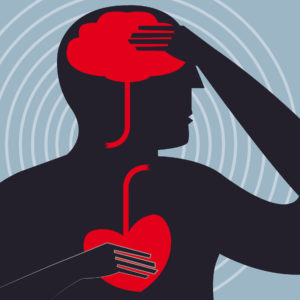Be Sure to Know the FAST Signs of a Stroke
May 18, 2022

In the United States, someone suffers from a stroke every four seconds. And one in four of those strokes occur in someone who has already had one. The chances are high that you know someone who has had—or will have—a stroke.
What is a stroke?
A stroke is a disruption in blood flow to the brain. This can be caused by a blocked or ruptured artery. Without oxygen-rich blood flowing to the brain, cells begin to die within minutes.
When it comes to strokes, every minute counts. We know that faster stroke treatment is associated with better outcomes and increased options for treatment. The sooner a person can get help, the better their chances of recovery and rehabilitation. That’s why Stroke Awareness Month in May is a good time to review the signs of a stroke, using the acronym FAST.
Stroke symptoms
F is for facial drooping. Ask the person to smile. Is there an unusual asymmetry or “droopiness” in one side of the face?
A is for arm weakness. Is there numbness or weakness in either the arms or the legs? Ask the person to lift both arms. Does one drift downward?
S is for speech. Is the person’s speech slurred? Or is their speech unintelligible? Can they understand what you say to them?
T is for time to call 9-1-1. Make sure to tell the dispatcher that you think it may be a stroke.
Do not attempt to drive a suspected stroke victim to the hospital yourself. Modern ambulances have tools at their disposal that may be able to be used to diagnose a stroke on the way to the hospital, and ambulances won’t have to slow down for traffic or stop at stoplights.
Stroke symptoms can be difficult to identify. Sudden headache with no known cause, trouble seeing in one or both eyes, trouble walking, and confusion can all be signs of a stroke. Call 9-1-1 right away if you suspect someone is having a stroke. It is far better to be wrong about the signs of a stroke than to let precious minutes pass before you or a loved one gets treatment.
Mini-strokes
If the symptoms of a stroke resolve themselves after a few minutes, the person may have suffered from a “mini-stroke.” Mini-strokes, or transient ischemic attacks, often precede a larger stroke and will not resolve themselves without medical intervention. Approximately 15% of people who suffer a mini-stroke will have a major stroke within three months. A mini-stroke is still an occasion to seek medical help immediately.
No two strokes are the same, and neither is the treatment. At Ridgeview, our skilled therapists help people recover from the effects of stroke through occupational, physical, and speech therapy.
